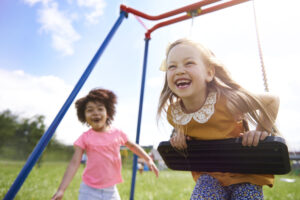
If you or someone you know are in immediate danger, call 911
New York State Child Abuse Hotline: 800-342-3720
Trafficking & Exploitation Hotline: 315-218-1966
The Centers for Disease Control and Prevention (CDC) defines child abuse and neglect as any act or series of acts of commission or omission by a parent or other caregiver (e.g. clergy, coach, teacher) that results in harm, potential for harm, or threat of harm to a child.
Abuse comes in many different forms such as sexual abuse, physical abuse, emotional abuse, and neglect. It happens more often than you think. Five children die every day as a result of abuse and neglect.
The following warning signs are commonly associated with abuse, neglect, and human trafficking. These signs by themselves may not be conclusive evidence that a child is being abused or neglected, but serve as a guide to help identify abuse and neglect when it is present.
Signs of Child Neglect
Child Neglect is the willful or non-willful failure to provide for a child’s basic needs such as adequate food, clothing, shelter, medical care, education, or proper supervision that impairs or risks impairment of a child’s health or well-being.
- Malnourishment or inadequate nutrition
- Begging, stealing, or hoarding food
- Frequent poor hygiene including matted hair, dirty skin, severe body odor, etc.
- Torn and/or dirty clothes
- Unattended physical or medical problems
- Child states there is no caretaker at home
- Distended stomach, emaciated
- Frequent absence or tardiness from school
- Regularly displays fatigue or listlessness or falls asleep in class
- Self-destructive behavior
- Extreme loneliness and need for affection
Sourced from New York State Family Court Act – FCT § 1012
Signs of Child Sexual Abuse
Child Sexual Abuse refers to any sexual act with a child by an adult or another child of any age. It includes, but is not limited to, forcing or encouraging a child to engage in sexual activity, fondling or rubbing the child’s genitals, penetration, rape, sodomy, indecent exposure, voyeurism, or using the child for prostitution or for the production of pornographic materials.
- Pain, swelling, itching, or bleeding in genital or anal areas
- Difficulty and/or pain when sitting or walking
- Excessive seductiveness
- Age-inappropriate sex play
- Premature understanding of sex or age-inappropriate sexual knowledge
- Display age-inappropriate behaviors with toys, themselves, or others
- Role reversal, overly concerned for siblings
- Significant weight change
- Suicide attempts (especially adolescents)
- Sleep disturbances or nightmares
- Depression
- Unusual aggression
- Interest or avoidance of all things of a sexual nature
- Threatened by physical contact of closeness
- Extreme fear of being alone with certain children or adults
- Sexual victimization of other children
- Major changes in normal mood or behavior
Sourced from New York State Social Services Law – SOS § 473
Signs of Child Physical Abuse
Child Physical Abuse is intentional injury inflicted upon a child or the use of force resulting in bodily injury, pain or impairment, brain trauma, or even death. It may include, but is not limited to, severe shaking, beating, slapping, punching, kicking, burning, or improper physical restraint.
- Frequent unexplained injuries and/or when the child or parent cannot adequately explain injury causes such as: bruises, cuts, lacerations, black eyes, fractures, burns
- Burns or bruises in an unusual pattern
- Lack of reaction to pain
- Injuries such as broken bones, bruises, burns, or welts in various stages of healing
- Injuries involving the face, backs of hands, buttocks, genital area, abdomen, back, or sides of body
- Frequent complaints of pain without obvious injury
- Complaints of soreness or discomfort when moving
- Fear of going home or seeing parents or caretaker
- Passive, withdrawn, emotionless behavior
- Aggressive, disruptive, and destructive or self-destructive behavior
Sourced from New York State Social Services Law – SOS § 473
Signs of Child Emotional Abuse
Child Emotional Abuse is the willful infliction of mental or emotional anguish on a child by threat, humiliation, intimidation, or other abusive conduct. This may also occur when a parent fails to provide the understanding, warmth, attention, and supervision the child needs for healthy psychological growth. Emotional abuse may include, but is not limited to, frightening, isolating, belittling, insulting, rejecting, or constant criticism of a child with no evidence of love, support, or guidance.
- Speech disorders
- Delayed physical development
- Substance abuse
- Ulcers, asthma, severe allergies
- Habit disorders (sucking, rocking, biting)
- Extremes in behavior from overly aggressive to overly passive
- Difficulty in school
- Failure to thrive
- Difficulty sleeping or insomnia
- Eating disorders
- Depression
- Suicide attempts
- Frequent lying
- Antisocial or destructive behaviors
- Delinquent behaviors (especially adolescents)
Sourced from New York State Social Services Law – SOS § 473
Signs of Commercial Sexual Exploitation
Just as “it takes a village to raise a child,” it takes a community that’s aware and looking out for its children to keep them protected from child trafficking and exploitation. Be informed and watch out for the children in your community:
Vulnerabilities
- History of sexual abuse, neglect, or domestic violence
- Family background in commercial sex
- Displaced by social or natural disaster
- Is part of an undocumented, stateless, or ostracized group
- Poverty or family economic strain
- Unstable or inconsistent family conditions (i.e. parental absence or neglect, substance abuse, physical/sexual/emotional abuse, multiple foster homes)
- Running away or truancy
- Low self-esteem or self-worth
- Experimenting with risky sexual behaviors or drugs
Common Situations
- Strip clubs, exotic dancing, pornography
- Begging
- Online ads, chat services, and porn sites
- Escort or dating services
- Domestic labor (housecleaning, childcare, elderly care)
- Restaurants or bars
- The streets
- Factories, sweatshops, or agricultural work
- Businesses such as hotel/motels, massage parlors, nail salons
Potential Red Flags
- Is under 18 years old and performs commercial sex acts
- Is excessively monitored or controlled by parents, a supposed guardian, or older partner or “sponsor” who claims to provide for their upbringing and needs or who insists on speaking for them or being present at all times
- Detached or (suddenly) isolated from a majority of family members and friends
- Is unable to give answers about their schedules or living and work locations/conditions; appears to possibly work and live in the same building or location
- Has numerous inconsistencies in his/her story; contradictory personal information (age, place of birth, family life)
- Has excessive security measures at his/her home or work (i.e. security cameras, boarded or covered windows); constant traffic of men at his/her home or work location
- Noticeable change in dress, jewelry, hair, or nails without an explainable source of income
- Shows signs of physical or sexual abuse (bruises, cuts, burns, submissiveness, jumpy, malnourishment); appears fearful, anxious, depressed, overly submissive, and avoids eye contact
- Suffers from substance abuse problems (alcohol and/or drugs), an array of other psychological disorders, sexually transmitted diseases, or chronic illnesses
- Carries multiple hotel key cards, lots of money, sharp objects (weapons)
- Sudden presence of an older boyfriend
- Tattoo with a name that is not their own; or that he/she is reluctant to explain
Report Abuse

Child abuse can be prevented, and it starts with you. It exists in every community, regardless of age, race, education, socio-economic status, or culture. All adults share the responsibility to report suspected child abuse.
Children’s lives depend on your courage. If you suspect a child is being abused, make a call to the New York State Child Abuse Hotline. Someone will answer your call 24 hours a day. The information you provide is confidential and you will remain anonymous. If a child is in immediate danger, call 911.
When you call the Child Abuse Hotline to report suspected abuse, you will speak with a child abuse expert who will walk you through the reporting process. You will be encouraged to leave your name and telephone number; all sources of a child abuse report remain confidential.
The child abuse expert will ask you a series of questions about your suspicion of child abuse. It is helpful to have some basic information such as the name, date of birth, address, and phone number of the child you are concerned about.
- New York State Child Abuse Hotline: 800-342-3720
- New York State Mandated Reporter Hotline: 800-635-1522
- Trafficking and Exploitation Hotline: 315-218-1966